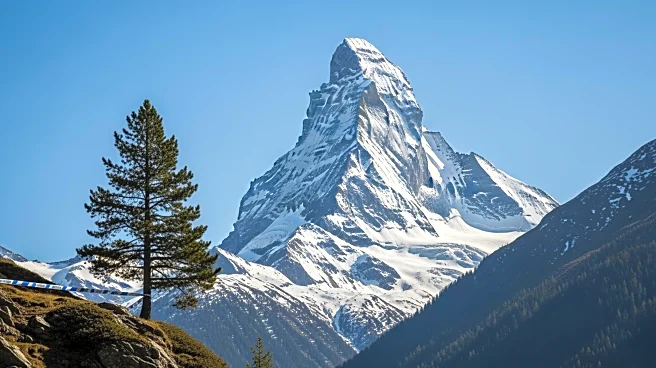What's Happening?
Researchers from the WSL Institute for Snow and Avalanche Research (SLF) in Davos are studying the impacts of climate change in the Alps, where temperatures are rising at twice the global average rate.
This rapid warming is leading to the melting of glaciers, increased rockfalls, and changes in flora and fauna. The study highlights the growing frequency of natural hazards such as debris flows and rock avalanches, posing significant challenges for communities in the Alpine region.
Why It's Important?
The findings underscore the urgent need for adaptation strategies in the Alps, a region heavily reliant on tourism and agriculture. As natural hazards become more frequent, infrastructure and communities face increased risks, potentially affecting local economies and livelihoods. The research also emphasizes the broader implications of climate change on mountain ecosystems, which serve as critical water sources for millions of people. Addressing these challenges requires coordinated efforts in climate policy and sustainable development.
What's Next?
The study suggests that communities in the Alps must prepare for more frequent and severe natural hazards. This may involve investing in resilient infrastructure and improving early warning systems. Policymakers and scientists are likely to focus on developing comprehensive adaptation strategies to mitigate the impacts of climate change. Additionally, there may be increased collaboration between countries in the region to address shared environmental challenges.
Beyond the Headlines
The situation in the Alps highlights the complex interplay between climate change and human activity. As temperatures rise, traditional ways of life and cultural practices in mountain communities may be threatened, prompting discussions on preserving cultural heritage. The research also raises ethical questions about the responsibility of industrialized nations in addressing climate change impacts on vulnerable regions.








